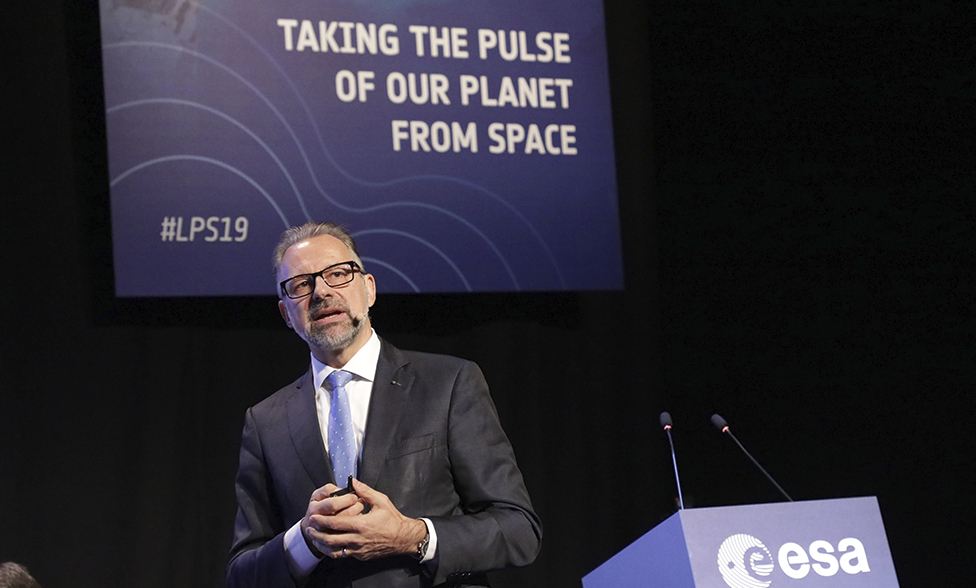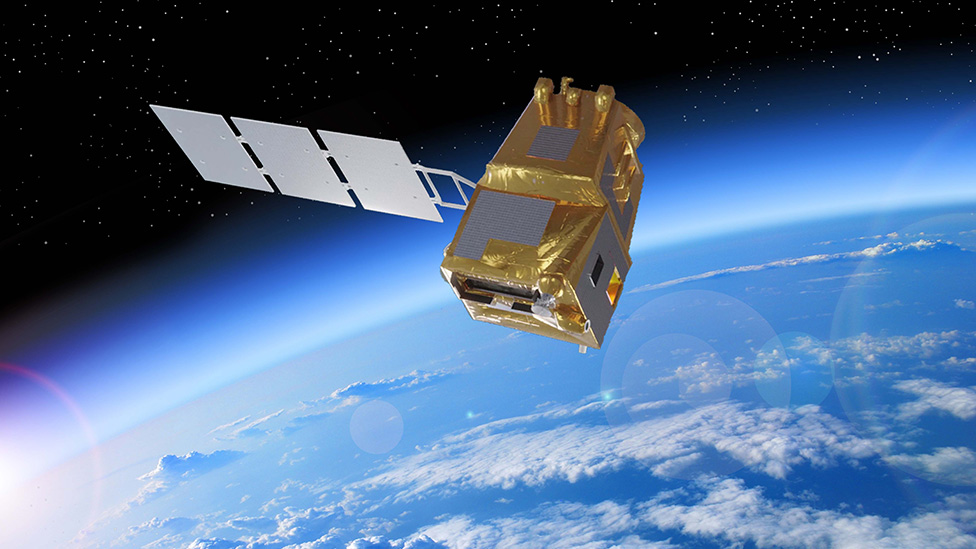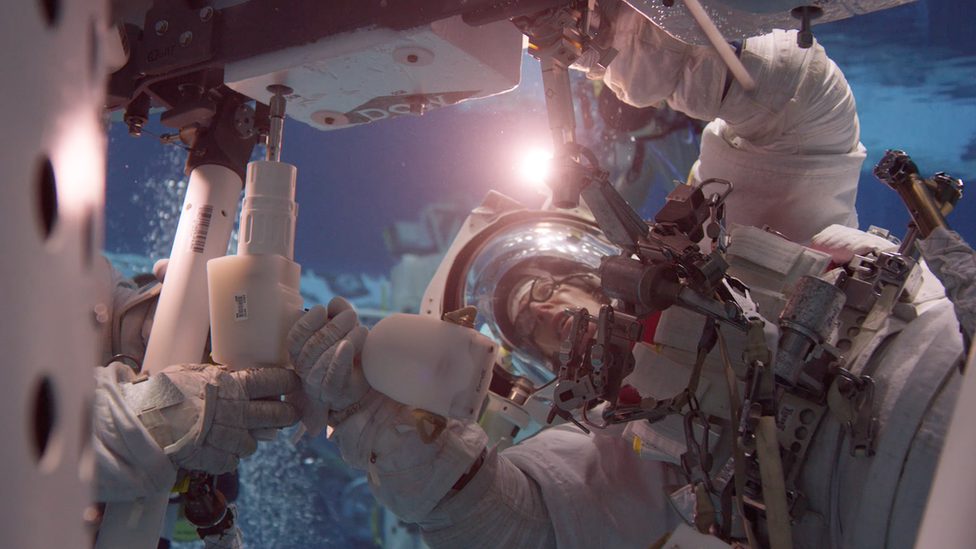
image copyrightESA
Austrian Josef Aschbacher will be the new director general of the European Space Agency (Esa).
Currently in charge of Earth observation at the organisation, his new position was confirmed by a meeting of member states this week.
He will take up the post on 1 July, succeeding the German Jan Wörner, who has been at the helm for five years.
Mr Aschbacher said tying down the details of Esa’s relationship with the EU would be one of his top priorities.
The two organisations are legally separate but are increasingly working hand in glove, with the Paris-based space agency acting as the technical adviser and procurement agent for Brussels’ space projects.
EU programmes implemented by Esa, such as the Galileo sat-nav system and the Copernicus-Sentinel satellite network, make the European Commission the single largest contributor to the agency’s budget – more than any individual member country.
Mr Aschbacher said the current negotiations between Esa and the EC over financing would define the agency for years to come.
“That’s something I would like to tackle – of course, realising that we have different member states [some of which] are not a member of the EU,” he told reporters.
“So Esa needs to be at the same time, the agency of all its member states, all 22, including the non-EU member states, but at the same time becoming the implementing agency of the European Union space programmes.”

image copyrightAIRBUS
In this context, one of Mr Aschbacher’s big challenges will be how he handles the UK, which is Esa’s fourth-largest (financially) member state but which also now has a fractious relationship with Brussels.
London’s decision to leave the EU has already seen it drop out of Galileo and the difficulties in striking a trade deal could mean it falls out of Copernicus in the coming weeks as well.
Nick Shave, who speaks for the UK space industry umbrella group, UKSpace, said the Esa-EU relationship was critical but that he was hopeful Mr Aschbacher could steer a distinctive path.
“Previous DGs have been proud to keep Esa as an identity. I think that’s important,” he told BBC News.
Another of Mr Aschbacher’s priorities will be to bring a more commercial approach to the agency’s activities. Already, it implements a number of public-private partnerships within its own programmes where commercial concerns bear some of the risk and cost of those activities. But Mr Aschbacher wants this to go further, with the desire that Esa investments seed new companies.
“Sometimes people say, ‘why does Europe not have a SpaceX?’; ‘why does Europe not have a Planet (the private American Earth observation company)?’; or ‘why does Europe not have other companies that are really driven largely by the commercial sector?’
“This is something we need to look into. I’ve some ideas of how this can be done. But, certainly, commercialisation – continuing this effort that we’ve already started – is something I really would like to focus on,” he said.

image copyrightESA
Mr Aschbacher’s selection was confirmed at the Council meeting of Esa member states which took place over Wednesday and Thursday.
The meeting also agreed €218m (£197m) of further funding for Europe’s new heavy-lift rocket, Ariane-6. This vehicle is due to make its maiden flight in the second quarter of 2022.
And, in addition, there was discussion about the next round of astronaut selection. Esa hasn’t recruited new astronaut candidates since 2009.
New applications will be invited at the end of quarter-one next year, with details of how the process will work likely to be released in February.
David Parker, the head of human spaceflight at Esa, said 2021 would be a “super-exciting year”.
“We discussed the policy aspects of astronauts this week at Council, but we also were able to announce the first mission by one of our astronauts, Matthias Maurer, to the International Space Station next year. His mission is called ‘Cosmic Kiss’.
“It’ll be the first time we’ll have two astronaut flights to the space station in the same year because, of course, Thomas Pesquet, is going there in the early part of 2021.”
[email protected] and follow me on Twitter: @BBCAmos
Read MoreFeedzy


